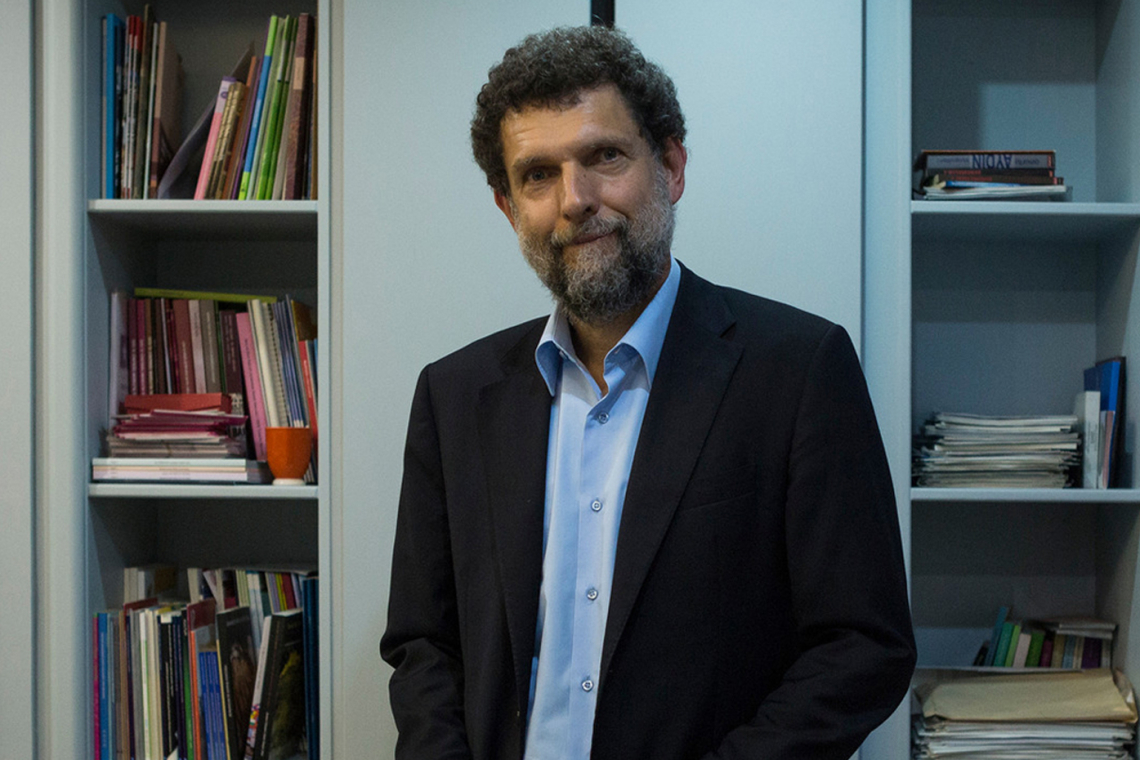The Court of Cassation's 3rd Criminal Chamber recently overturned the convictions of three defendants in the Gezi Park trial but upheld the convictions of five others, including Osman Kavala and Can Atalay, while changing their legal status. The MLSA Legal Unit has conducted a series of evaluations regarding the newly designated "convicted prisoners."
After the Court of Cassation uhpeld the guilty verdicts against Mr. Kavala and his co-defendants, their legal status transitioned from that of being under pretrial detention to that of convicted prisoners. Given that their convictions relate to crimes of terrorism, they are slated for incarceration in a facility designated as a "high-security closed prison." This facility is infamous Silivri Penitentiaries Campus (the name changed to Marmara Penitentiaries Campus).
Sentence Conditions for Mr. Kavala
Mr. Kavala has been given a sentence of aggravated life imprisonment. As a result, he will be subject to specialized rules concerning his confinement. The most notable differences will pertain to the number of occupants sharing his cell and the regulations concerning visits he can receive.
Housing and Incarceration
Specifically, Mr. Kavala will be housed in a single-occupancy cell that comes equipped with its own bathroom and kitchen facilities. In contrast, the remaining convicts have the option of being placed either in single cells or in cells designed to accommodate three prisoners. All prisoners, regardless of their individual circumstances, will be granted one hour of outdoor activity per day.
Visitation Rights
The protocols for communication and visits will vary between Mr. Kavala and the other prisoners. While Mr. Kavala is allowed visitation only from his spouse, children, parents, siblings, and legal counsel, and that too for a limited period of one hour every fifteen days, the other convicts have more flexible visitation options. They can be visited once a week by either their spouses, relatives up to the third degree, or by up to three individuals whose contact details they provided at the time of their admission. These visits will last for a duration that is no less than half an hour and no more than one and a half hours.
Types of Visits
There are two categories of visits: closed and open. During a closed visit, a glass barrier will separate the visitor and the prisoner, and communication will take place via a telephone line. In an open visit, the visitor and the prisoner will be permitted physical interaction. In both scenarios, a prison guard will monitor the interactions. Mr. Kavala is entitled to one closed and one open visit each month. For the other convicts, they can have one open visit each month and three closed visits for the remaining weeks.
Legal Consultations
All prisoners are permitted unlimited consultations with their lawyers on working days and during daytime hours. However, they can only meet with lawyers who do not possess a power of attorney up to three times in total. These meetings will not be wiretapped or listened to, although a prison guard will observe them. Any written correspondence with their lawyers cannot be intercepted unless there is explicit approval from the prosecuting authorities and the presiding judge.
External Delegations
Unlike the other prisoners, Mr. Kavala is not allowed visits from any domestic or foreign delegations. Other prisoners may receive such visits, but this is contingent upon approval from the Ministry of Justice.
Reading Material and Personal Correspondence
Inmates are permitted to possess books, but only those that have been approved by the prison administration. They are limited to having 15 books in their cells at any given time. Additionally, only newspapers that have been recognized by the government will be allowed. All incoming and outgoing letters will be scrutinized by the prison authorities, but any correspondence with their lawyers will remain confidential.
Amenities and Utilities
The prisoners will be allowed to have televisions in their cells, although computers are prohibited. Other permitted appliances include refrigerators, kettles, hairdryers, and fans. The cost for using electricity will be borne by the prisoners themselves.
Personal Items and Food Provisions
Gifts can be received by the prisoners once every two months, as well as on special occasions like religious holidays, New Year’s Eve, and birthdays. Cooking facilities will be available, but food items must be purchased from the prison administration. Basic kitchen equipment will be provided, and prisoners can cook their own meals. They are also allowed to have a limited number of personal items, such as three pairs of shoes, one belt, underwear, socks, and a maximum of thirty garments.
Telecommunication
Mr. Kavala is restricted to making phone calls to his immediate family members for no more than ten minutes every fifteen days. In contrast, other prisoners will have more frequent opportunities for phone communications, as determined by the prison administration.
* This is just an information note. Even though there are legal rights granted to convicts expressly, we observe limitation of these rights in practice as seen in previous examples in Türkiye.



